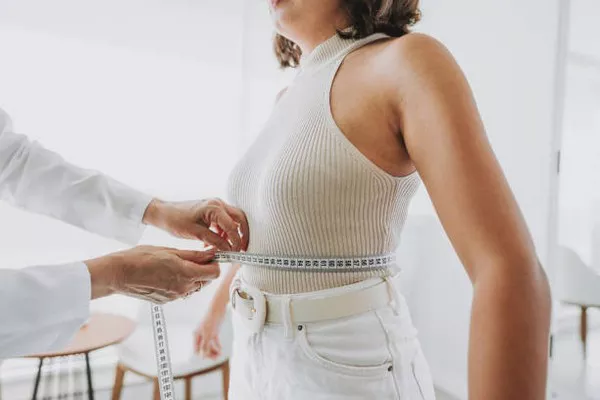For Betsy and Gary Appelsies, a trip to the ice cream shop had long been the go-to remedy for a tough day. But one day, after indulging in their familiar comfort food, they looked at each other and realized they could no longer keep up their unhealthy habits. This shared epiphany led to a life-changing decision: both would undergo weight-loss surgeries.
Betsy chose gastric bypass surgery to combat her Stage 2 obesity, while Gary opted for sleeve gastrectomy, a less invasive procedure that was particularly important for him due to his health conditions, including Parkinson’s disease and cardiovascular issues. Their decision to have the surgeries at the same time was practical—they had already met their annual insurance out-of-pocket maximums—but it turned out to have unexpected emotional and physical benefits.
The Power of Pairing Up for Bariatric Surgery
Betsy and Gary’s experience shows that having weight-loss surgery together can provide an unexpected layer of support. “We continually had different emotions and could go to one another,” says Gary. The couple provided constant encouragement to one another, keeping each other on track and reminding each other of the end goal. Gary explained, “If I did the surgery and Betsy was eating pasta, I would have been tempted to eat some. Now, we don’t bring those foods into the house.”
Dr. Andre Teixeira, who performed the surgeries at the Orlando Health Weight Loss and Bariatric Surgery Institute, has seen many couples undergo surgery together, noting that it often helps them stay on the same page. “It puts everyone on the same wavelength,” he says, acknowledging how such a shared experience can even reboot relationships.
Transforming Their Relationship with Food
For the Appelsies, food was always central to their lives. However, after their surgeries, their relationship with food changed dramatically. “We buy chicken tenders instead of whole breasts,” Gary says. “We cook three and freeze the rest for another meal. It’s about smaller portions.” They now use cocktail forks and espresso spoons to ensure their portions stay small, helping them avoid overeating.
Dining out has also become a different experience. “We still go out, but we order one entrée and split it,” says Betsy. Instead of indulging in all-you-can-eat buffets, they now savor their meals in moderation, enjoying the experience without overindulging. For a special occasion, they celebrated Gary’s birthday by going to Norman’s, a fine dining restaurant, where they split three small plates during happy hour. “We got to enjoy the amazing service, experience the beautiful setting, and save a ton of money,” Betsy adds.
Impressive Weight Loss and Health Benefits
Nearly a year after their surgeries, the Appelsies have made remarkable progress. Betsy has lost 75 pounds, going from a size 18-20 to a size 10-12. “I feel better in my body, and I am amazed when I look at myself,” she says. She’s now focused on adjusting her migraine and bipolar medications to fit her new bodyweight.
Gary, who started at 267 pounds with a BMI of 36.2, has lost 106 pounds, bringing his BMI down to a healthy 21.6. His blood pressure has dropped significantly, and he is now focused on maintaining his new weight.
While both have plateaued in their weight loss, they’re committed to continuing their journeys. Betsy plans to increase her exercise routine, and Gary, having reached his goal weight, is focused on maintaining his progress.
The Importance of Support Systems and Open Communication
The Appelsies credit their success to not only their surgeries but also the strong support system they received. “The Orlando Health Bariatric Institute has been amazing,” Gary says, highlighting the guidance they received from nutritionists and nurses. But emotional support was just as crucial. “Telling our friends and family was so helpful,” Betsy explains. “After the surgery, they’d offer to walk the dogs or run errands for us, and that emotional support made all the difference.”
Despite the positive changes, the Appelsies still have occasional moments of weakness. But their approach to these moments has changed. “We still go to the ice cream shop sometimes,” Betsy says, “but now it’s just three or four licks, and then I don’t even have the craving anymore.”
In the end, their shared journey to better health has not only transformed their bodies but also their relationship, both with food and each other.
Related Topics:
How Much Does Options Medical Weight Loss Cost


